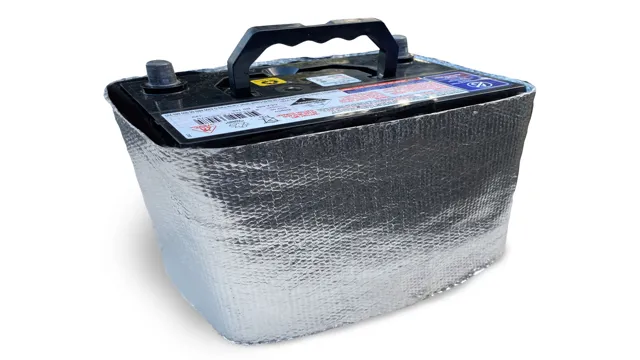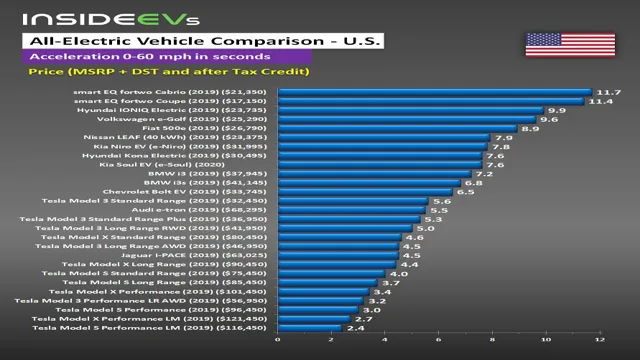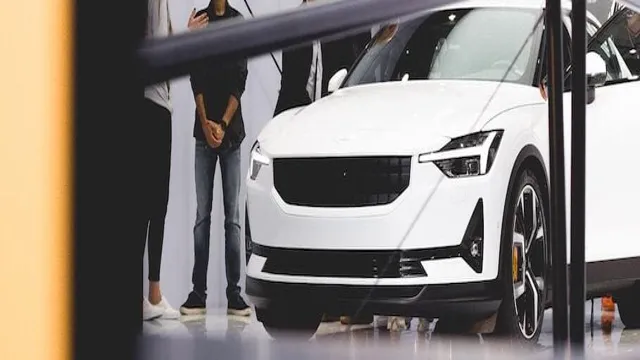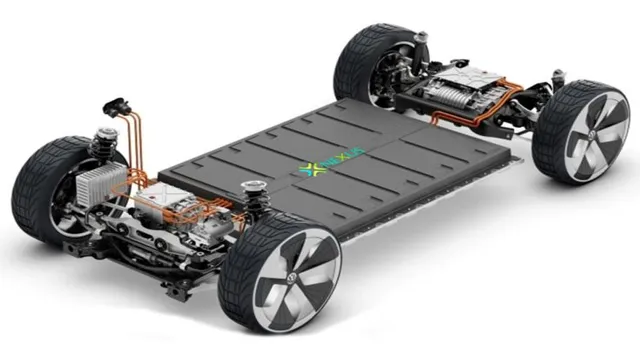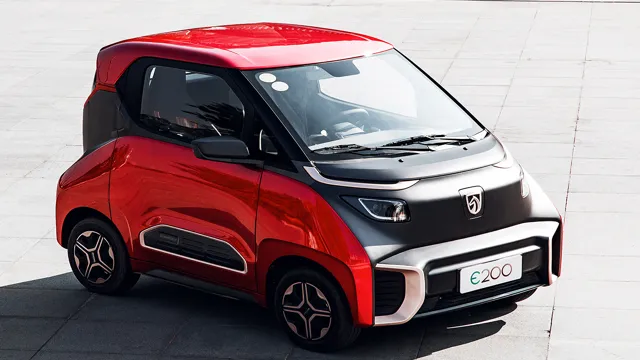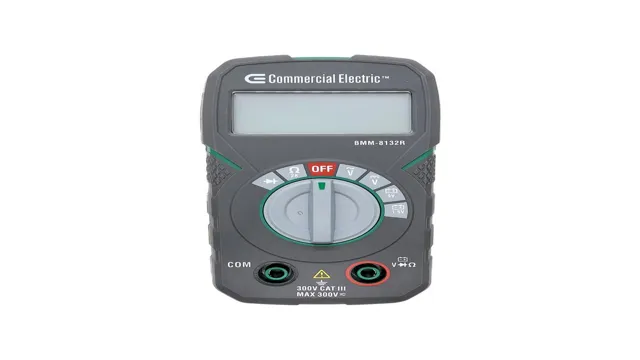Boost Your Electric Car’s Performance with Effective Battery Insulation: Stay Eco-Friendly and Save Money
Due to the environmental impacts of fossil fuels and the growing awareness of climate change, electric cars have gained rapid popularity in recent years. However, these vehicles rely on powerful batteries that require proper insulation to function safely. Electric car battery insulation is a crucial aspect of these powerful machines that is often overlooked.
The insulation protects the battery from damage, controls its temperature, and ensures proper performance. Without proper insulation, the batteries may overheat and become prone to a variety of complications, including explosions, fires, and damage to other parts of the car. Therefore, electric car battery insulation plays a critical role in ensuring the safety and efficiency of electric vehicles.
In this blog post, we will explore the importance of electric car battery insulation and how it works to keep these eco-friendly vehicles operating smoothly.
The role of insulation in electric car batteries
When it comes to electric car batteries, insulation plays a crucial role in protecting them from wear and tear, as well as preventing damage and safety hazards. Insulation acts as a thermal barrier, preventing the battery from overheating, which can cause fires or explosions. It also helps to keep the battery at a stable temperature, which extends its lifespan and maximizes its efficiency.
Insulation materials used in electric car batteries can range from traditional fiberglass to advanced aerogels, which are ultra-lightweight and highly effective at thermal management. Overall, proper insulation is critical to maintaining the safety and longevity of electric car batteries, and manufacturers are constantly developing innovative solutions to improve battery insulation and performance.
Reduce heat
Electric car batteries generate excessive amounts of heat, which can adversely impact their performance and lifespan. A crucial component in mitigating this potential issue is insulation. By adequately insulating the battery, the heat generated can be contained and regulated, thereby preserving its long-term performance.
Insulation can come in the form of both passive and active thermal management systems. Passive insulation involves the use of materials that have a low thermal conductivity to insulate the battery pack’s cells. On the other hand, active thermal management systems utilize sophisticated technology to manage the battery’s temperature actively.
This includes the use of liquid cooling agents, blower-style fans, or even heat pumps. Insulation plays a vital role in electric car batteries as it ensures the battery’s optimal performance, durability, and safety. By reducing the heat generated, it can help reduce the risk of thermal runaway, which could cause severe damage to the battery or even the vehicle itself.
Being aware of the significance of insulation in the management of electric car batteries is critical to ensure their smooth operation and safe usage on the road.
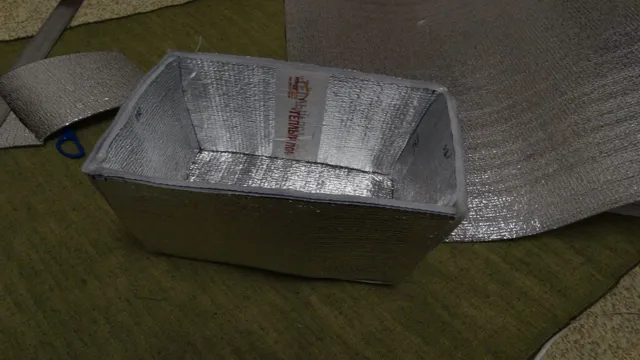
Prevent temperature fluctuations
Insulation is crucial when it comes to regulating the temperature of electric car batteries. Temperature fluctuations in an electric vehicle’s battery can have a significant impact on its performance and lifespan. Insulation helps to maintain the battery temperature within an optimal range, preventing it from overheating or freezing.
Additionally, insulation prevents the loss of energy through heat transfer to the environment. Proper insulation can significantly improve the battery’s performance and increase its overall efficiency. Therefore, automakers pay careful attention to the insulating materials used in their electric cars.
Insulation thickness, material, and design are all critical factors, and the right combination can make a big difference in how well the battery performs. To sum it up, insulation plays a vital role in keeping the battery at the right temperature and ensuring that the electric car runs efficiently.
Types of insulation materials for electric car batteries
When it comes to electric cars, the battery is a crucial component that requires adequate insulation to maintain its temperature and performance. There are several types of insulation materials used in electric car batteries, including mineral wool, fiberglass, polyurethane foam, and ceramics. Mineral wool is made from natural rock or recycled slag and provides excellent thermal insulation.
Fiberglass is a popular choice because it is lightweight and highly efficient. Polyurethane foam is used due to its low thermal conductivity and flexibility, allowing for easy installation. Ceramics are another good option since they are durable and resistant to high temperatures.
Ultimately, the choice of insulation material depends on factors such as cost, performance, and environmental impact. By utilizing the right insulation, electric car batteries can operate safely and efficiently, thereby ensuring a longer lifespan and improved performance.
Ceramic fiber
Ceramic fiber is one of the popular types of insulation materials for electric car batteries. It is lightweight and has a high resistance to heat, making it an ideal choice for battery insulation. Ceramic fiber is made from a combination of alumina and silica and has excellent insulating properties.
It is also resistant to chemical degradation and does not release harmful byproducts when exposed to high temperatures. When used as an insulation material, ceramic fiber can help regulate the temperature of electric car batteries, preventing them from overheating or freezing. As a result, the battery life is extended, and the car’s overall performance is improved.
With the growing demand for electric vehicles, ceramic fiber is expected to play an increasingly vital role in battery insulation technology. As a sustainable and eco-friendly alternative to other insulation materials, ceramic fiber is a reliable and practical solution for electric car manufacturers and owners alike.
Polyimide film
Electric car batteries require effective insulation materials to ensure safety, efficiency, and durability. Polyimide film is one of the most popular insulation materials for electric car batteries due to its excellent thermal stability, high-temperature tolerance, and resistance to chemicals. Polyimide film is available in various types, including Kapton® film, Upilex® film, and Apical® film.
Kapton® film is a well-known brand of polyimide film, which offers excellent electrical insulation, low dielectric constant, and high tensile strength. Upilex® film is a lightweight and flexible insulation material that exhibits exceptional mechanical and thermal properties, making it well-suited for electric car batteries. Apical® film is another type of polyimide film that is widely used in electric car batteries due to its superior dielectric strength and thermal resistance.
Overall, polyimide film is a leading choice of insulation material for electric car batteries as it can provide excellent protection against potential hazards that can arise from battery malfunction or overheating.
Silicone rubber
Silicone rubber is a popular insulation material for electric car batteries due to its excellent thermal and electrical properties. It is a synthetic elastomer that is highly resistant to extreme temperatures and has excellent electrical insulating properties, making it an ideal choice for electric car batteries. Silicone rubber can withstand high temperatures of up to 200 °C without deteriorating, which is important in an electric car where the batteries generate a significant amount of heat.
Furthermore, it is resistant to UV rays, moisture, and mechanical stress, which provides an added layer of protection for the battery. Silicone rubber is also known for its flexibility, which allows it to conform to the shape of the battery and create a perfect seal. This aids in preventing the ingress of moisture, dirt, and dust, which can damage the battery and cause performance degradation over time.
Overall, silicone rubber is a highly effective insulation material that is widely used in the electric car industry to ensure the safety and longevity of batteries.
Benefits of electric car battery insulation
Electric car battery insulation is a vital component of an electric vehicle’s system. This insulation helps protect the battery from temperature extremes, which can affect the chemical reaction inside the battery. Maintaining a stable temperature helps to extend the life of the battery, which is a crucial benefit for electric car owners.
Additionally, proper insulation can also help improve the efficiency of the vehicle, which can lead to increased range and cost savings. Insulation also contributes to safety by reducing the risk of battery fires that can result from short circuits or damaged cells. Overall, electric car battery insulation is essential for anyone who wants to keep their electric vehicle running efficiently and safely for years to come.
Improved battery life
Electric car batteries are essential components in electric vehicles that require proper insulation to enhance their longevity and performance. It is imperative to note that electric car batteries are a considerable investment, and battery maintenance is crucial in boosting efficiency and longevity. Insulation is one of the most effective ways of protecting electric car batteries and enhancing their performance.
Battery insulation helps to regulate the temperature of the battery, which ultimately leads to an improved lifespan. This is because extreme temperatures, either too hot or too cold, can affect battery performance and lifespan. With proper insulation, the battery’s temperature is regulated, which ultimately leads to an improved lifespan and performance.
Additionally, proper insulation also aids in maintaining the battery’s charging efficiency, which ultimately leads to improved battery life. Overall, battery insulation is a wise investment that improves the car’s battery life, longevity and ultimately, car performance.
Increased battery efficiency
Electric car batteries require insulation to prevent energy loss and boost efficiency. Insulation materials can help maintain the temperature of the battery, preventing it from overheating or becoming too cold, which can significantly prolong its life. When temperature rises, the internal resistance of the battery increases, resulting in significant energy loss.
Therefore, insulation is an essential component that not only saves energy but can also lengthen the lifespan of the battery. Ultimately, this means electric car owners can save money on battery replacements and enjoy a longer driving range. Battery insulation is a vital step towards increasing the battery’s overall efficiency, which ultimately leads to a more sustainable form of transportation.
By reducing energy loss, insulation materials help to preserve the environment, making driving an electric car a win-win situation for both the planet and our pockets.
Conclusion
In conclusion, electric car battery insulation is essential for keeping our vehicles running smoothly and efficiently. Just like how we bundle up in warm layers during the winter, electric car batteries use insulation to regulate their temperature and keep them from getting too hot or too cold. It’s a crucial component that ensures our cars operate at their best, so next time you’re cruising in your electric ride, don’t forget to thank the trusty insulation keeping your battery cozy!”
FAQs
What is electric car battery insulation?
Electric car battery insulation is a type of material used to prevent heat transfer and protect the battery from external factors that can damage it.
Why is insulation important for electric car batteries?
Insulation is important for electric car batteries because it helps regulate the temperature, protects the battery from damage, and ensures optimal performance and longevity.
What types of materials are used for electric car battery insulation?
Some common materials used for electric car battery insulation include ceramic fibers, silica aerogel, polyurethane foam, and aluminum oxide.
Can electric car batteries overheat if they are not properly insulated?
Yes, electric car batteries can overheat if they are not properly insulated, which can lead to reduced performance, damage to the battery, and even safety hazards.
